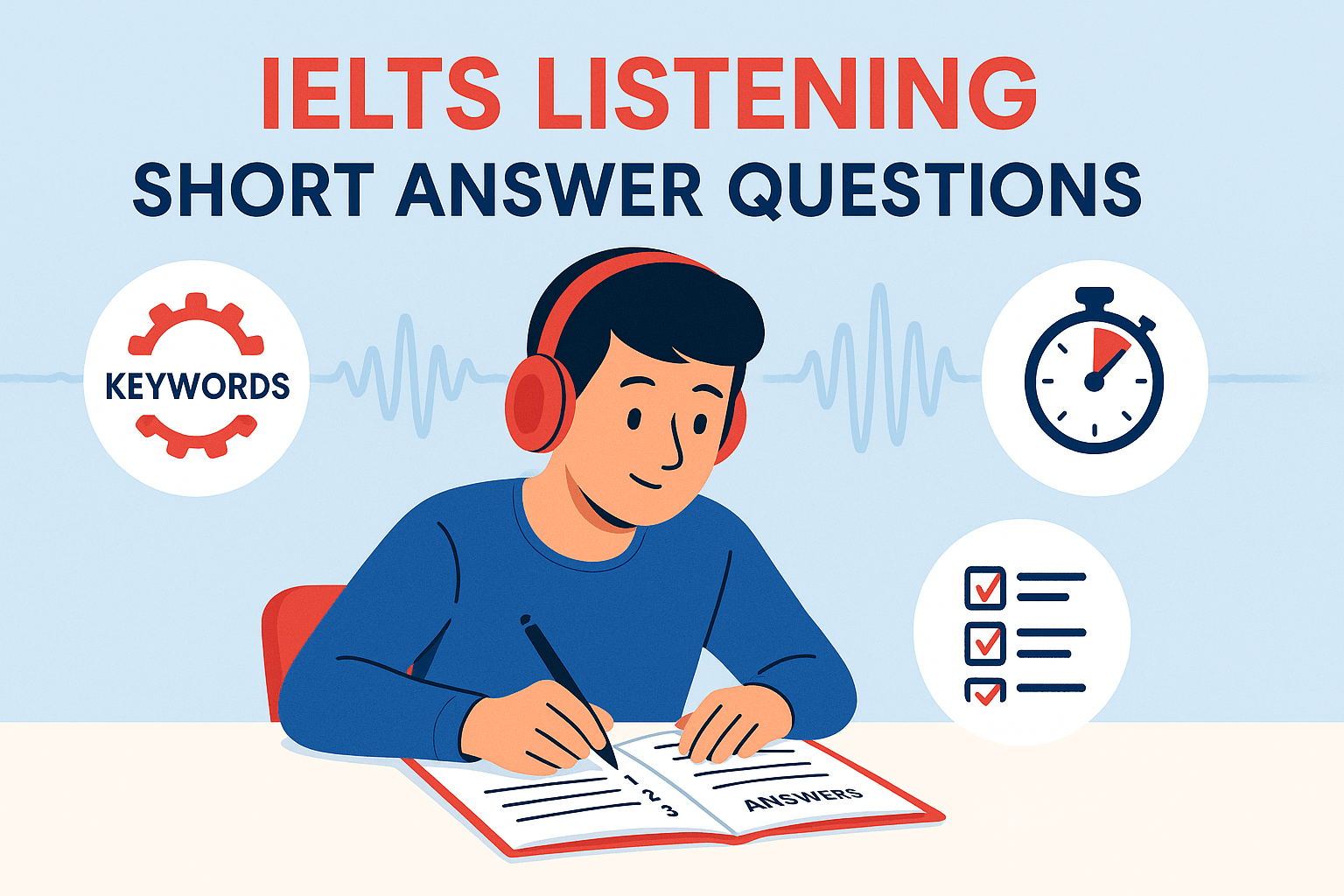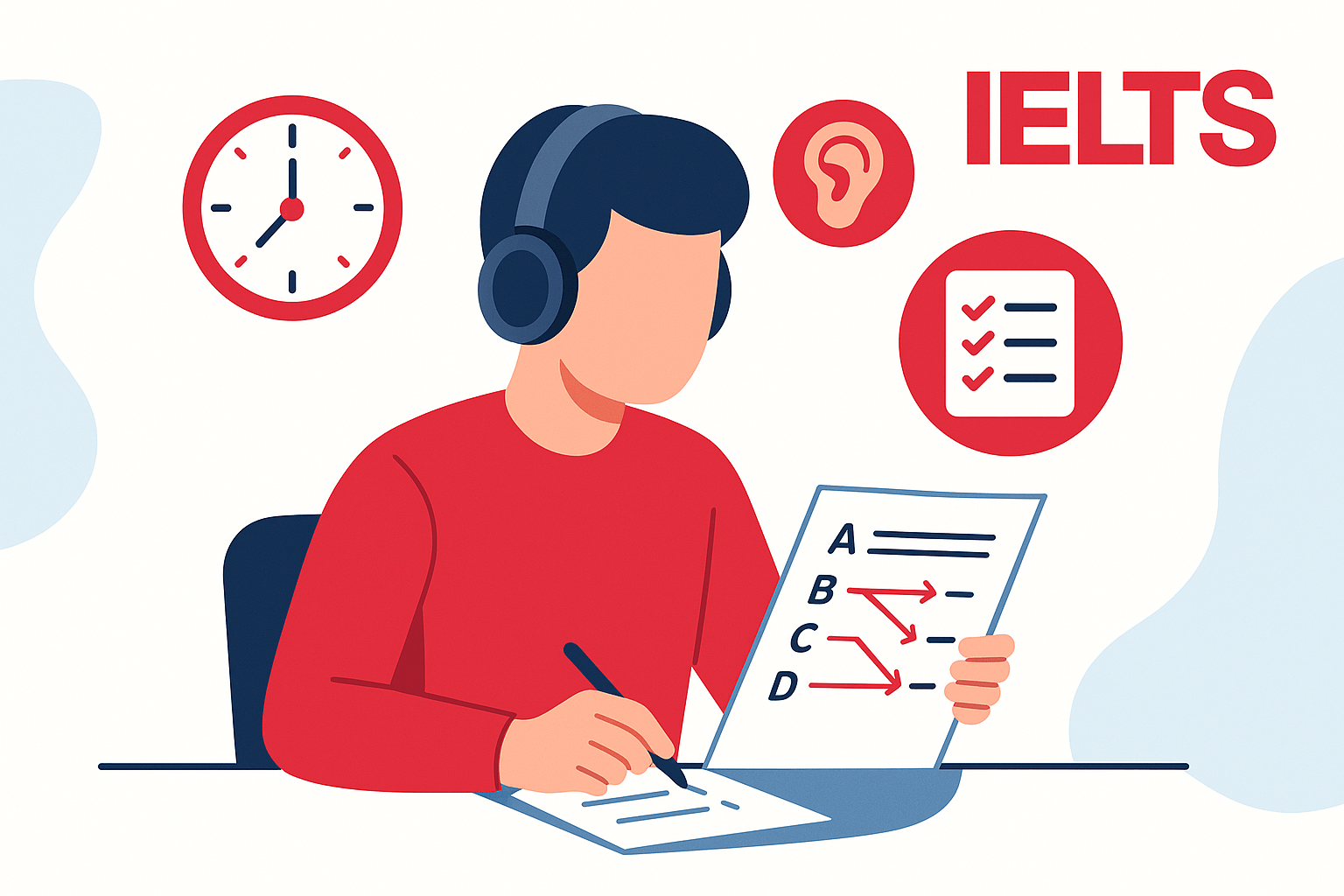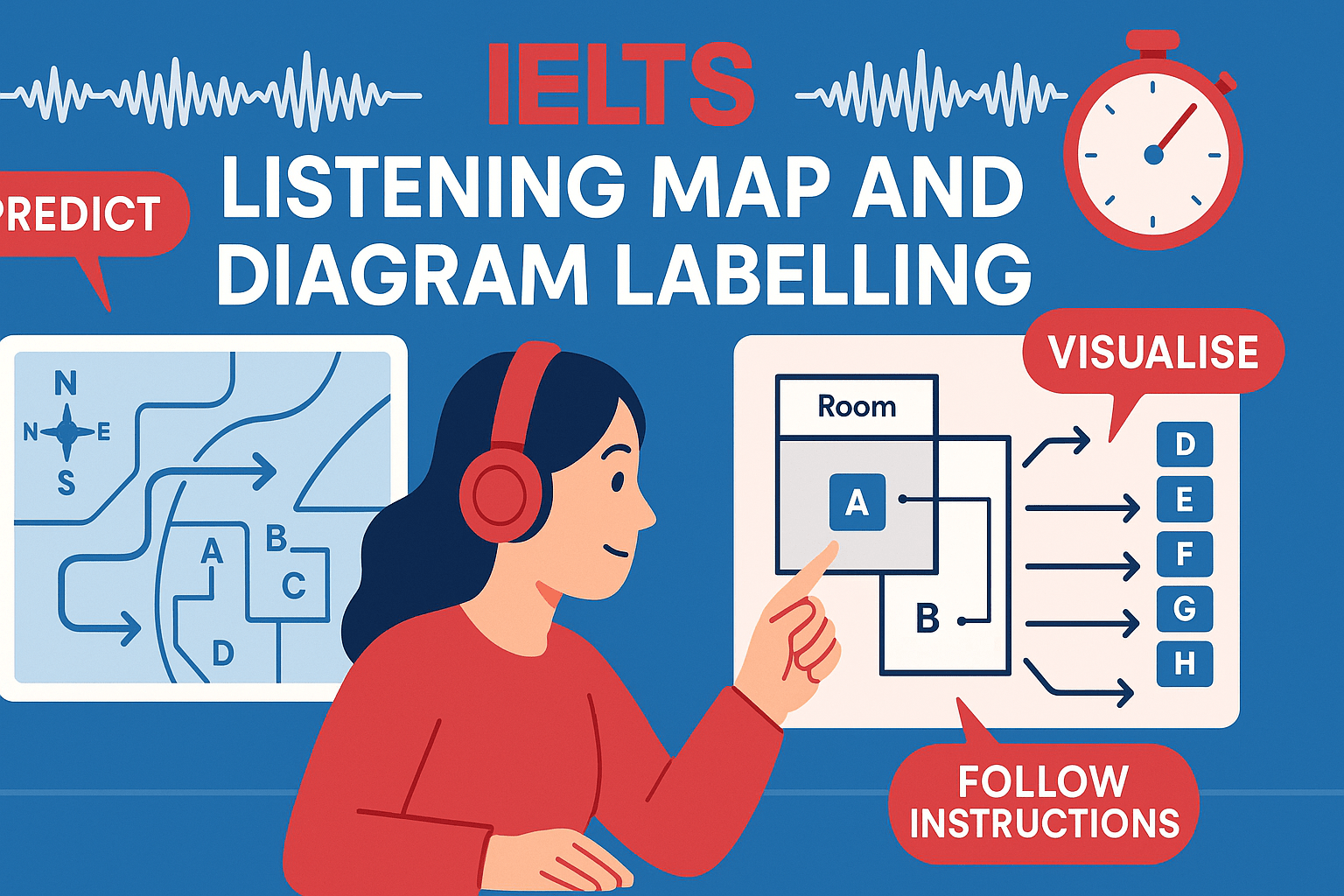As an international IELTS teacher working with learners from over 30 countries, one of the most common struggles I see is this: “I missed the answer even though I understood the audio!” This is where learning how to predict answers in IELTS Listening becomes a game-changer. From personal experience, I can tell you that the most successful students aren’t necessarily the best listeners—they’re the best predictors.
Let’s dive into why prediction matters, how to do it effectively, and the real strategies I use with my own students to help them hit Band 7–9 in the Listening test.
Why Predicting Answers Makes All the Difference
IELTS Listening is fast-paced. You only hear the recording once, and there’s no second chance. That’s why prediction isn’t optional—it’s essential.
When students don’t learn how to predict answers in IELTS Listening, they often get caught off guard by what type of information to listen for: is it a name, a number, a location, or a date? Without clear expectations, they either freeze or focus on the wrong details.
I remember coaching a student named Amir, who kept missing form completion questions. The moment he learned to anticipate that the next blank would require a postcode or a phone number, his accuracy improved dramatically—and he scored an 8.0 in Listening on his next attempt.
What Can You Predict Before the Audio Starts?
To predict effectively, ask yourself these three key questions as you skim the questions before the recording begins:
- What type of word is missing?
Noun, number, adjective, place, time? - What’s the context?
Is it a conversation, a lecture, a booking form, or a tour? - What’s the grammatical structure?
Is it followed by “is,” “will,” or a preposition?
Even just a few seconds of prediction can help your brain prepare for what’s coming—so you don’t rely solely on memory or speed.
Common Clues That Help You Predict Answers in IELTS Listening
From years of teaching experience, I’ve found that certain question types lend themselves more easily to prediction. Here are some tried-and-tested cues to look out for:
1. Form Completion
These usually ask for short details like a phone number, postcode, or date. So if you see a blank next to “Contact:”, you can almost guarantee a name or number is coming.
2. Map Labelling
If the options include places like “Entrance,” “Café,” or “Car Park,” you should predict locations and focus on directional language like “opposite,” “next to,” or “at the corner.”
3. Sentence Completion
Here, grammar is your best friend. If a sentence starts with “The lecture begins at…”, the blank obviously requires a time.
Students often skip these clues during the preparation time and end up missing the easiest answers. I always train my students to circle the predicted word type before the audio begins.
Real Student Strategy That Works
During one IELTS prep session, a student of mine from Vietnam struggled with short-answer questions. She kept trying to memorise question types, but it wasn’t sticking.
So I gave her a prediction drill: before each practice test, she had to write the expected word type beside each blank—just a 3-second note like “(time),” “(place),” or “(noun).” After two weeks, her Listening score jumped from Band 6 to Band 7.5. Why? Because she wasn’t just listening—she was expecting.
Practice This Skill Daily
Prediction isn’t just theory. It’s a skill you can and should practice every day.
Start with the free IELTS Listening Practice Tests I’ve included on our platform. Before you play the audio, spend 30–60 seconds scanning the questions and writing down what type of answer you expect.
Pair this with the full IELTS Listening Band 7–9 Guide and our Listening Strategies & Skills Breakdown, and you’ll develop both prediction speed and accuracy—two key components of high-band success.
If you’re looking for structured video lessons and premium exam simulations, check out our IELTS premium courses for step-by-step training.
FAQ: Predicting Answers in IELTS Listening
Q1: Is predicting really that important if I have good English listening skills?
Absolutely. Even native speakers can struggle with IELTS Listening if they don’t predict. It’s about anticipating the type of information, not just understanding the words.
Q2: Can I write predicted words next to the question during the exam?
Yes! You can write on the question paper during the test. Use this space to quickly note the type of word (e.g., “number,” “noun,” “date”) to guide your listening.
Q3: How can I get faster at predicting?
Practice with real IELTS sample papers and time yourself during the 30-second preview. The more you do it, the more intuitive it becomes.
Q4: Do all question types allow prediction?
Most do—especially form completion, notes, and sentence completion. Matching and MCQs are a bit trickier, but prediction still helps you narrow your focus.
Q5: Where can I find reliable IELTS Listening materials?
The best official resources are ielts.org, IELTS IDP, and the British Council’s practice hub. You can also access free and premium IELTS resources on Courseline.
Final Thought
Learning how to predict answers in IELTS Listening isn’t just a strategy—it’s a survival skill. With daily practice and the right approach, you’ll stop missing answers and start hearing them before they arrive. That’s the power of prediction.
Let’s make Band 8 your new reality.






One Response
I believe you have mentioned some very interesting points, regards for the post.